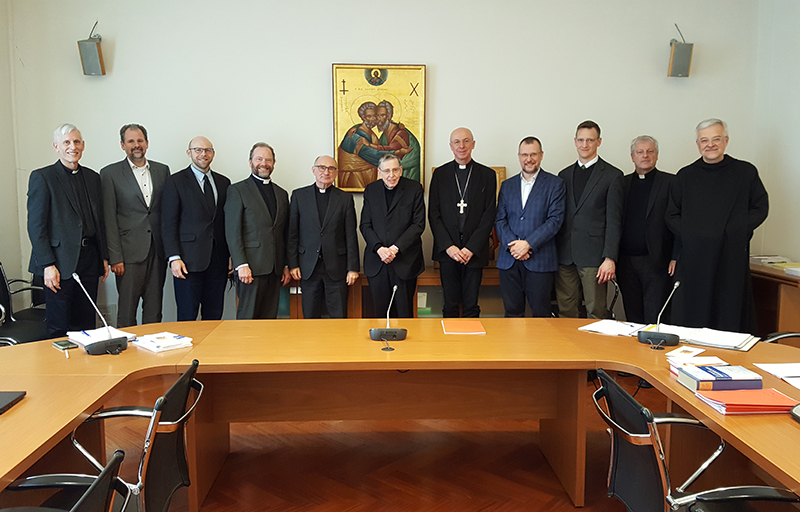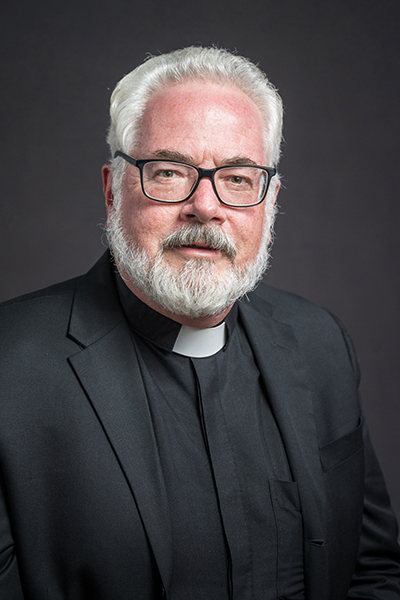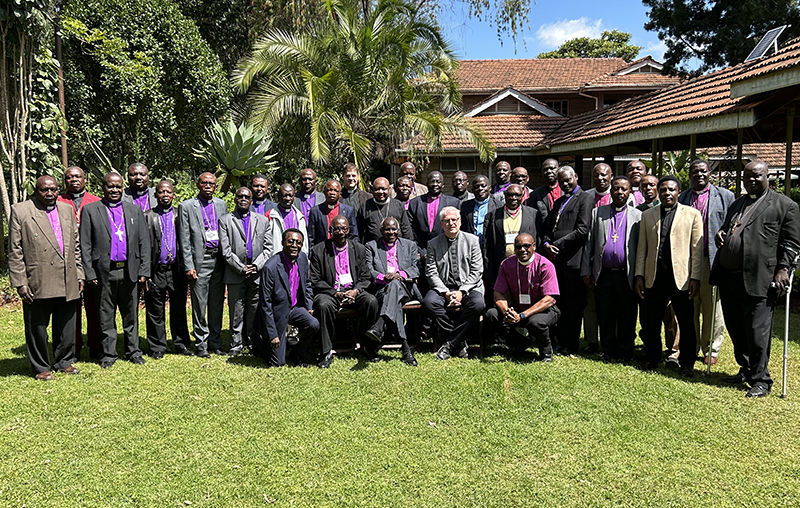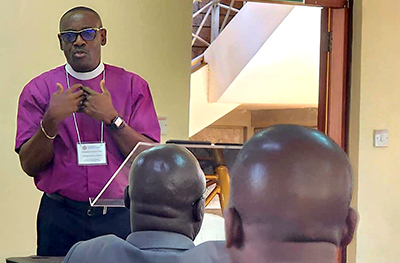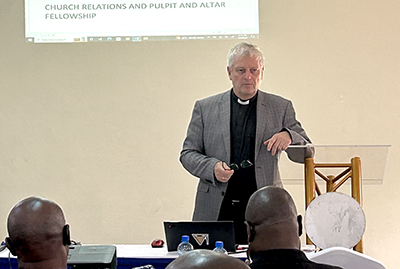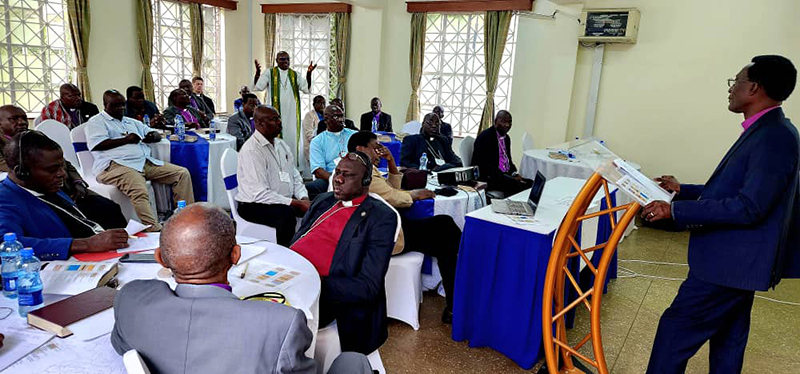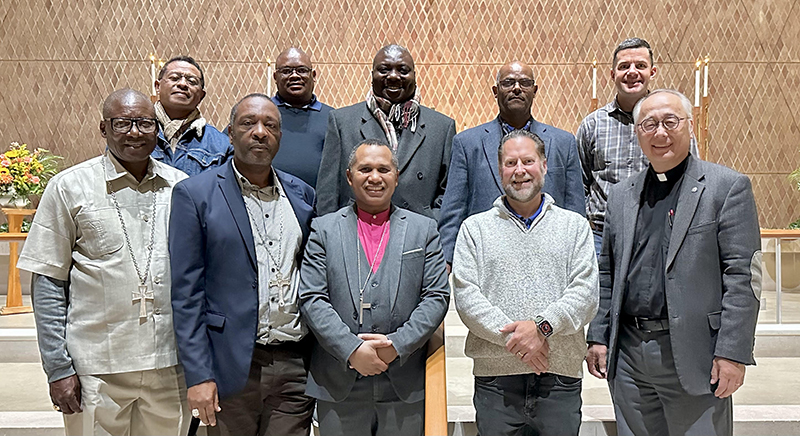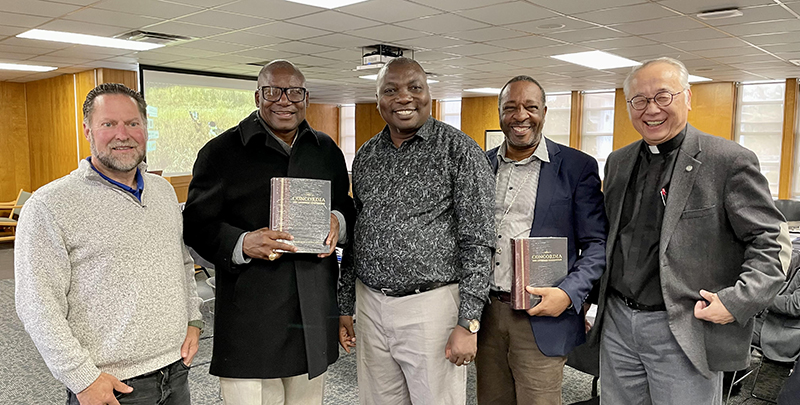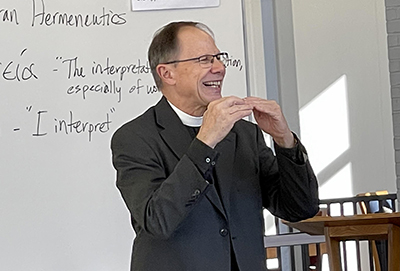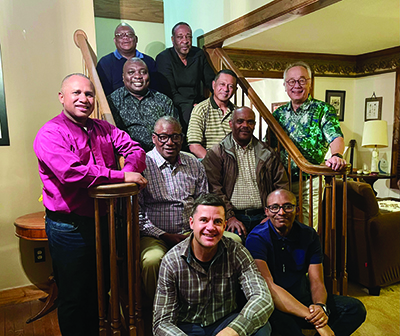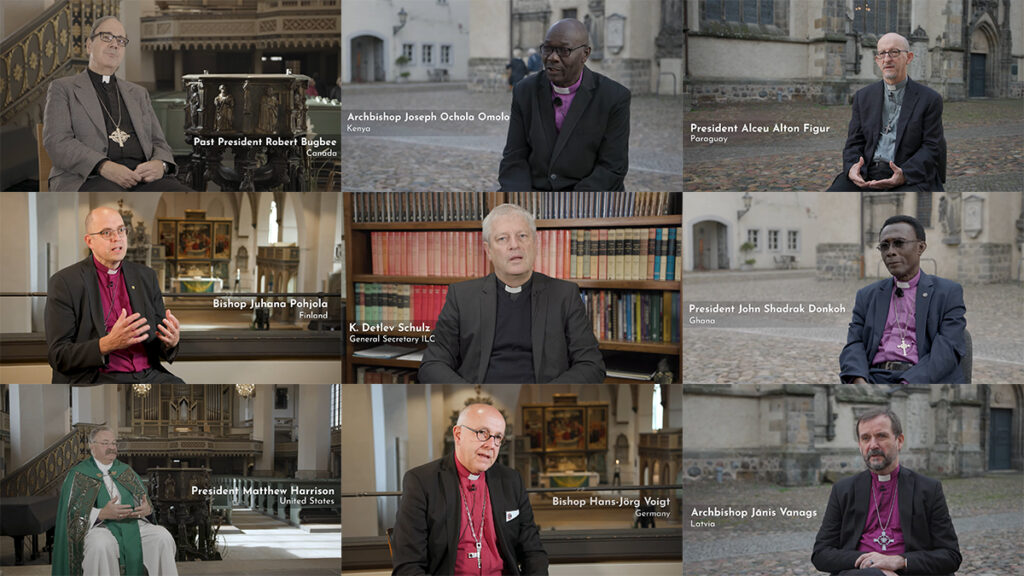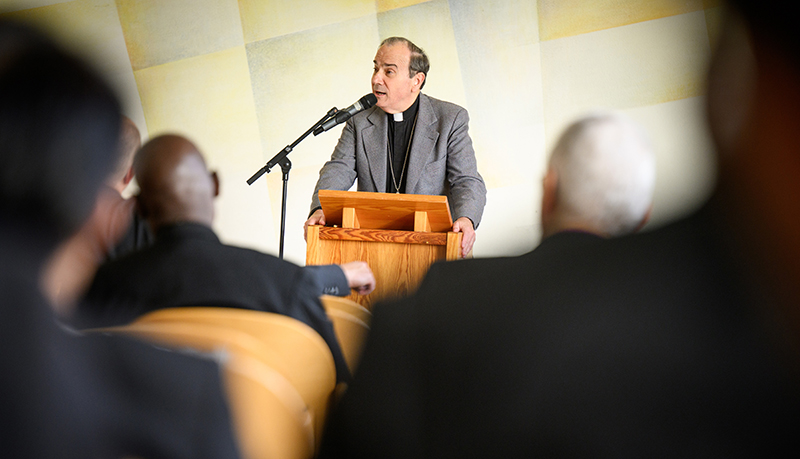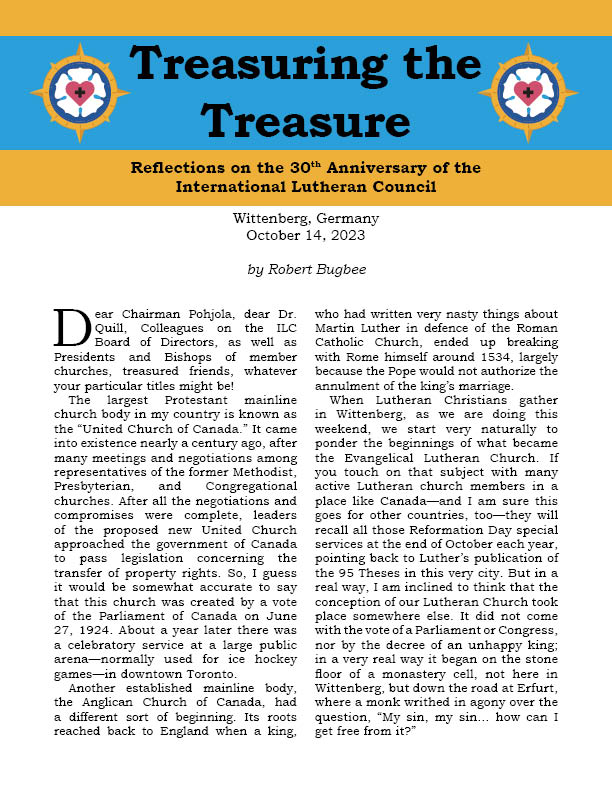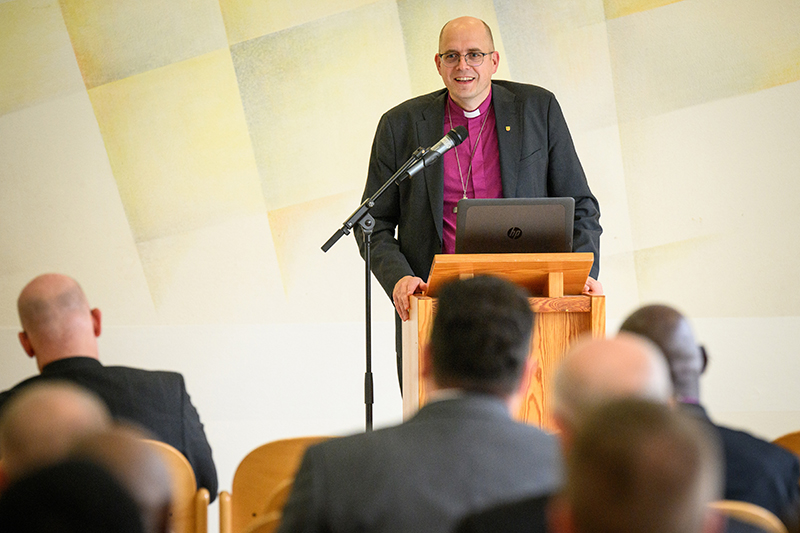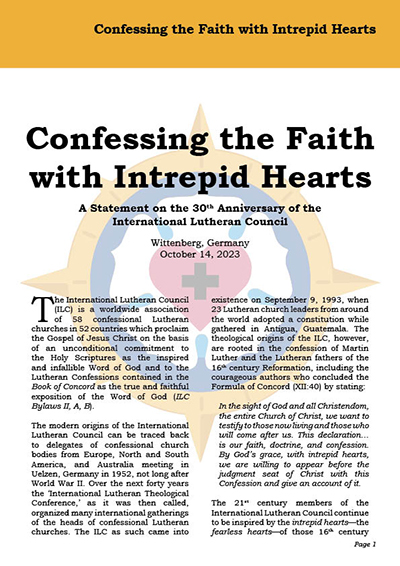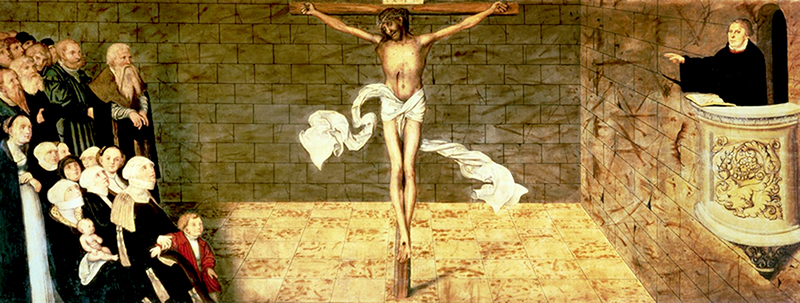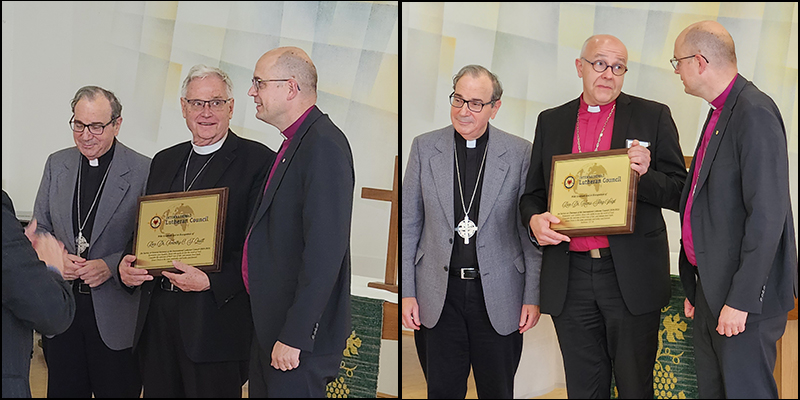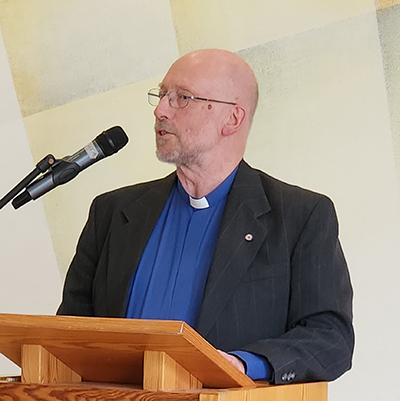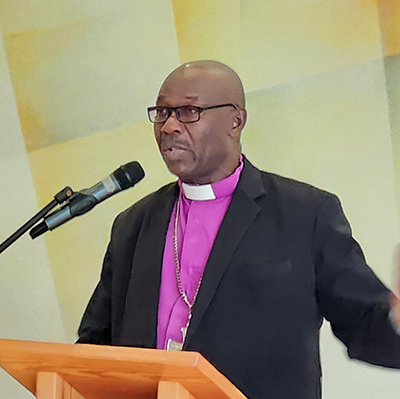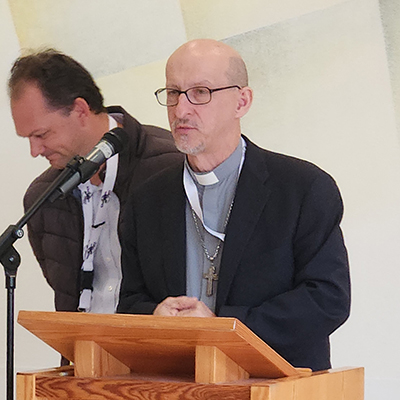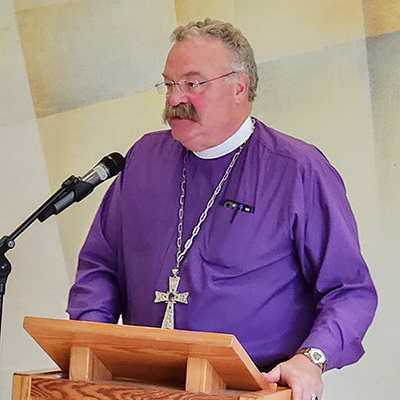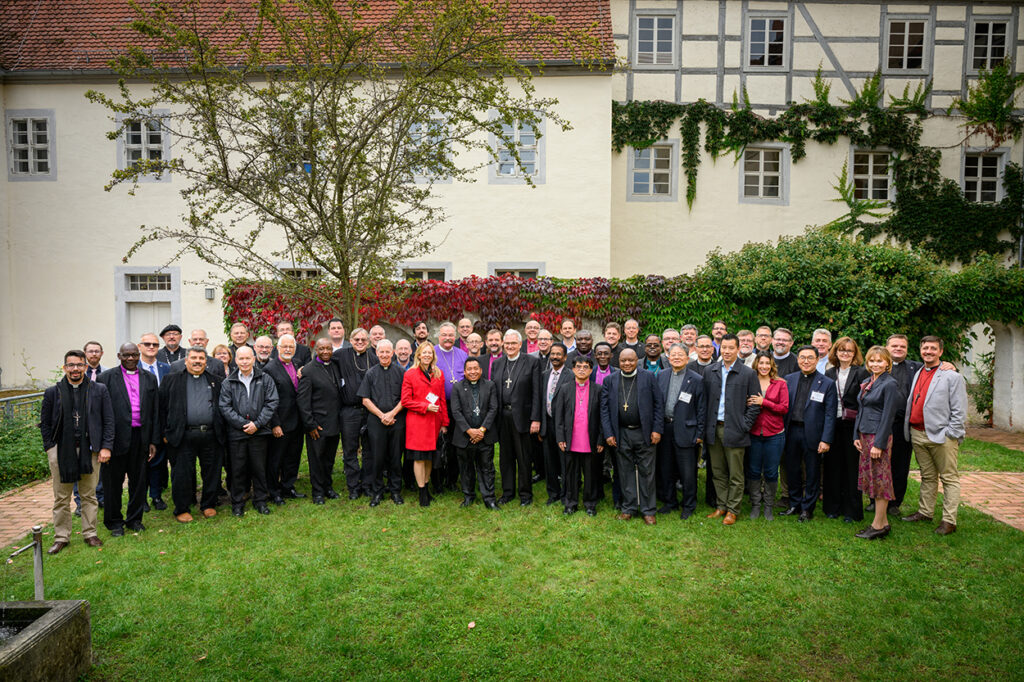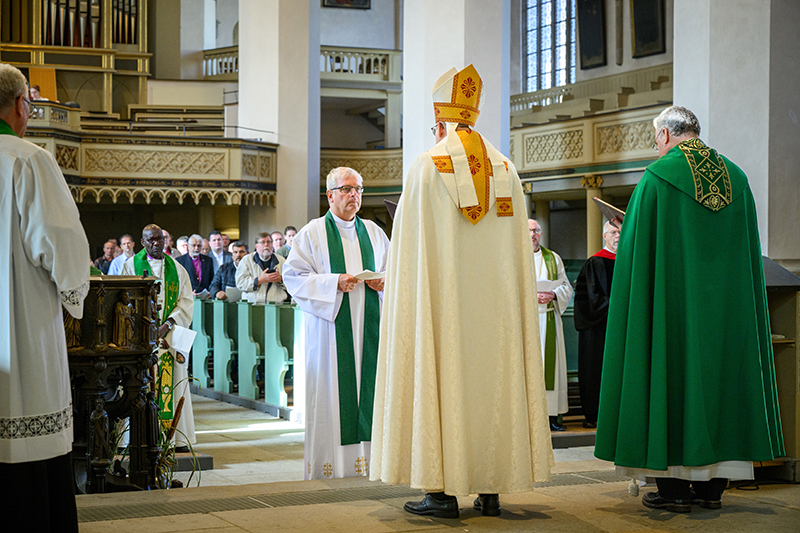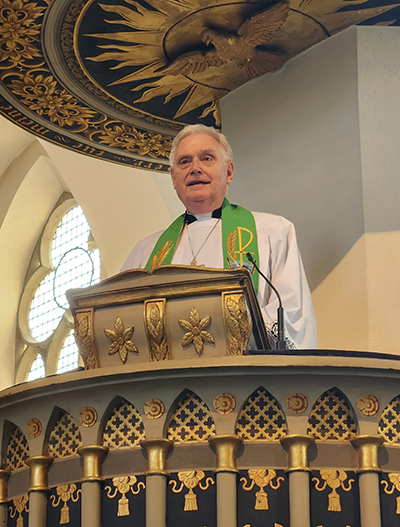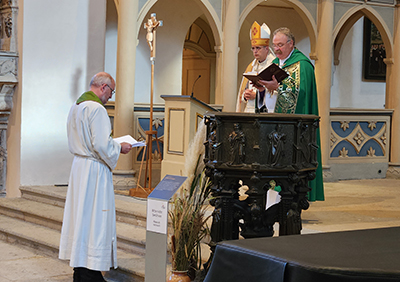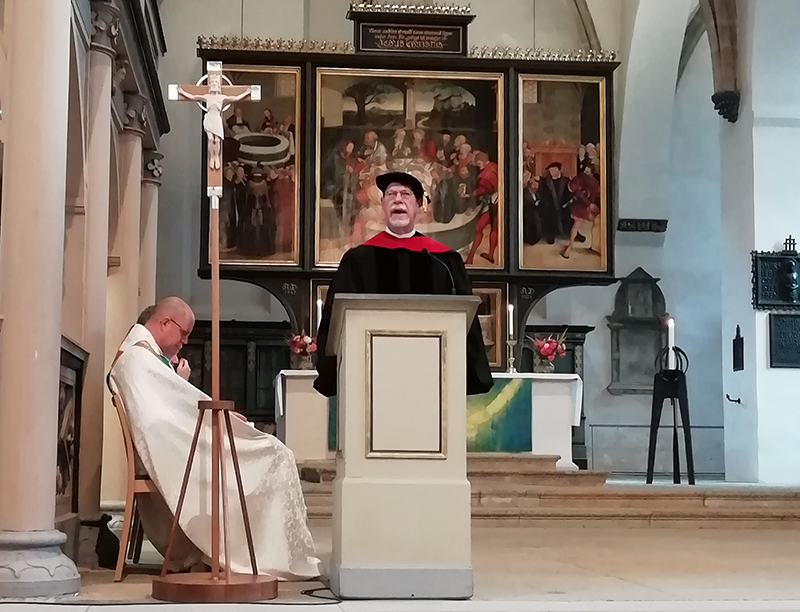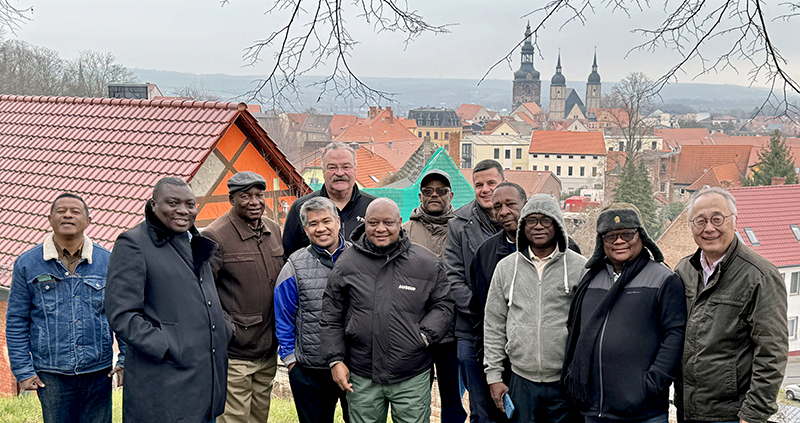
GERMANY – Church leaders from eight countries in Africa and Asia gathered in Wittenberg in late February for a session of the Lutheran Leadership Development Program (LLDP). This two-year program holds one of its six sessions in Wittenberg so participants can experience the birthplace of the Reformation.
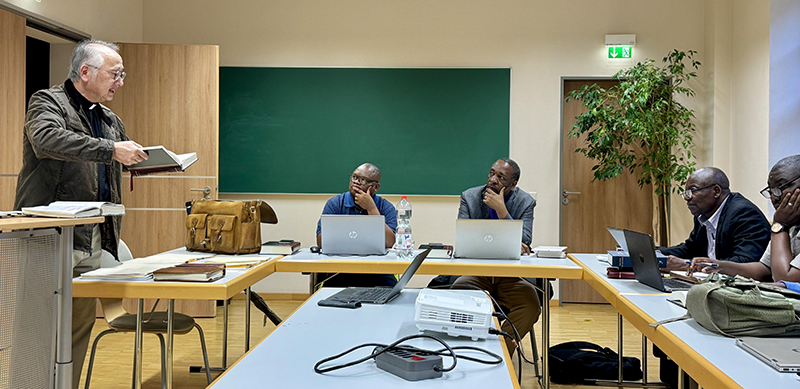
During the first week, LLDP Director, Rev. Dr. Naomichi Masaki, taught “Theology of the Lutheran Confessions.” President Matthew Harrison of The Lutheran Church—Missouri Synod (LCMS) joined for the second week to lead “History of the Lutheran Church.” As an important component of their studies, participants visited many sites significant in the unfolding of the Reformation.
In Wittenberg, the participants explored Luther House, Melanchthon House, Cranach House, Luther’s Oak, Leucorea (University of Wittenberg), City Church (St. Mary’s), Castle Church, Luther and Melanchthon’s Monuments, City Hall, and of course the Old Latin School where the managing director, Rev. Dr. Wilhelm Weber, welcomed LLDP to use its chapel for daily Matins. Outside Wittenberg, the group travelled to Eisleben to visit Luther’s birth and death houses, the Church of Sts. Peter and Paul where Luther was baptized, the Church of St. Andrew where he preached his last sermon, the Church of St. Anne—perhaps the first Lutheran Church ever built—and Luther’s parents’ house in nearby Mansfeld.
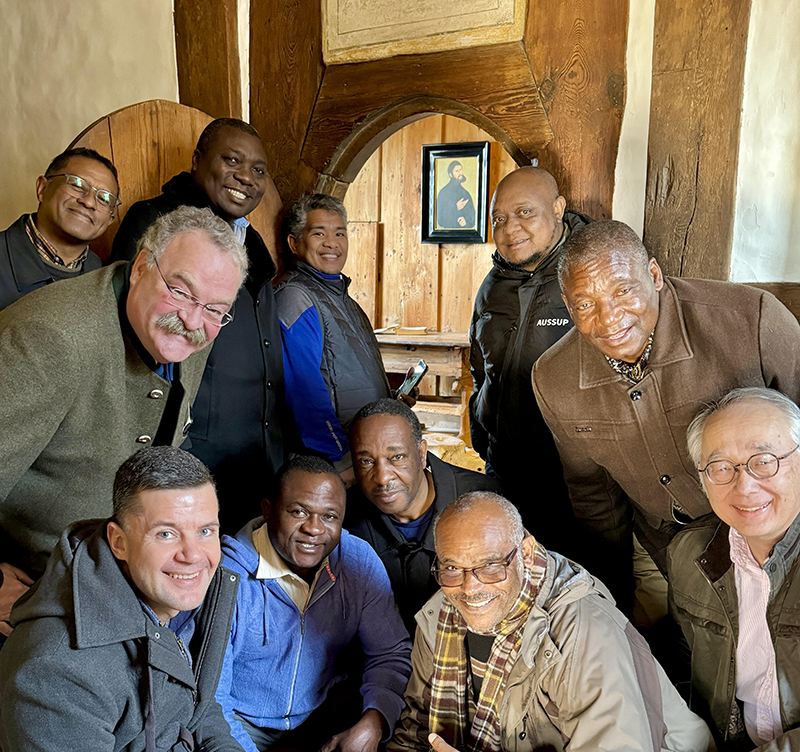
The participants also visited Torgau Castle and its church, the house in which the Torgau Articles (later incorporated into the Augsburg Confession) were drafted, the Church of St. Mary’s where Katharina Luther is buried, and Georg Spalatin’s house. On their way to Torgau, they visited a field in Falkenberg near Mühlberg where Elector John Frederick was captured during the Smalcald League war. The group journeyed to Wartburg Castle as well, and the Augustinian Monastery in Erfurt and the Church of Sts. Peter and Paul in Weimar. In each of the places they visited outside Wittenberg during their second week, President Harrison gave helpful commentary, capturing the significance of each location at the time of the Reformation.
In terms of classroom learning, Dr. Masaki was very pleased with the result of his week-long class on the “Theology of the Lutheran Confessions,” particularly because each participant, without exception, expressed his quia subscription to the Book of Concord. This included those who had come from Lutheran Church bodies associated with an ecumenical communion where Scripture and the Lutheran Confessions are doubted or even denied as norma normans and norma normata. One of the participants observed: “I came to understand not only that each article of doctrine relates to each other, with Christ at the centre as the Saviour and justifier of all sinners, but also that pure doctrine and confessional fellowship is what our brothers, even those who came from the liberal ecumenical communion, are also hungry and thirsty for.” Another participant commented: “Through this wonderful class, the importance of the Book of Concord was not only highlighted but also brought to life by working with its content. It was tremendous to have Dr. Masaki as lecturer, as he is passionate about the Lutheran Confessions, and has given a very positive impact upon all of us. Whenever we had questions, he was always ready to answer them.”
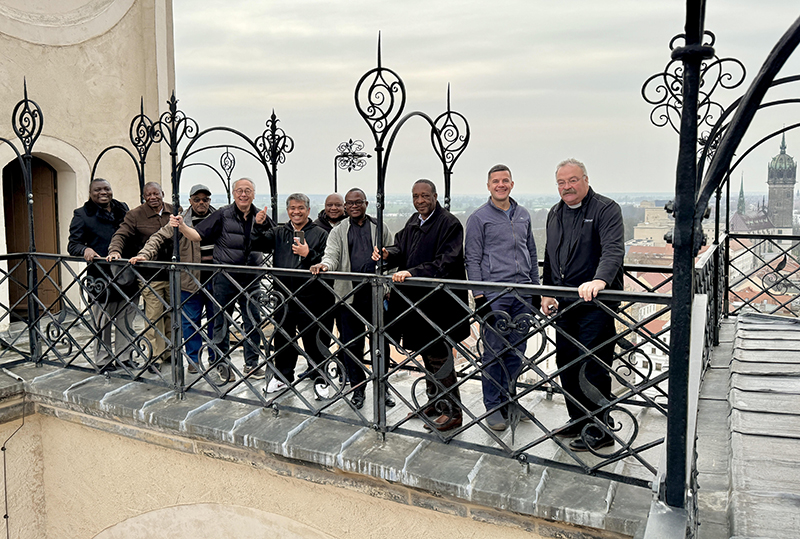
As a concluding exercise of for the first week’s class, all participants made concrete plans as to how they will continue studies of the Book of Concord themselves, as well as how they will encourage their ecclesial leadership to teach and promote the Lutheran Confessions among the pastors and people in their church bodies back home. They are all convinced how important the Scriptures and the Book of Concord are because the confessional fidelity separates true Lutheranism from the Lutheran Church in name only. After all, they said, the Lutheran Confessions—as the sound exposition of Scripture—comfort them as Christians and give them enormous encouragement for pastoral ministry.
LCMS President Harrison was one of the four signatories who initiated the LLDP back in 2017. Director Masaki was grateful to have him as an instructor this time. Participants commented on President Harrison’s class: “Through his course, it became absolutely clear that the Reformation was not a myth but a historical fact, having Luther and other Reformers sacrificing their very lives.” “It was absolutely different to hear about it or read about it in books and to visit the historic places.” The impact of hearing the stories of the Reformation gave each participant a lasting impact. Another participant mentioned: “What an excellent opportunity! I will ever remain grateful for this occasion. It was a special privilege to have President Harrison as our instructor for this course. Since he has a special interest in Lutheran history, he conveyed it to us students by simply speaking about it with much joy and deep confidence.”
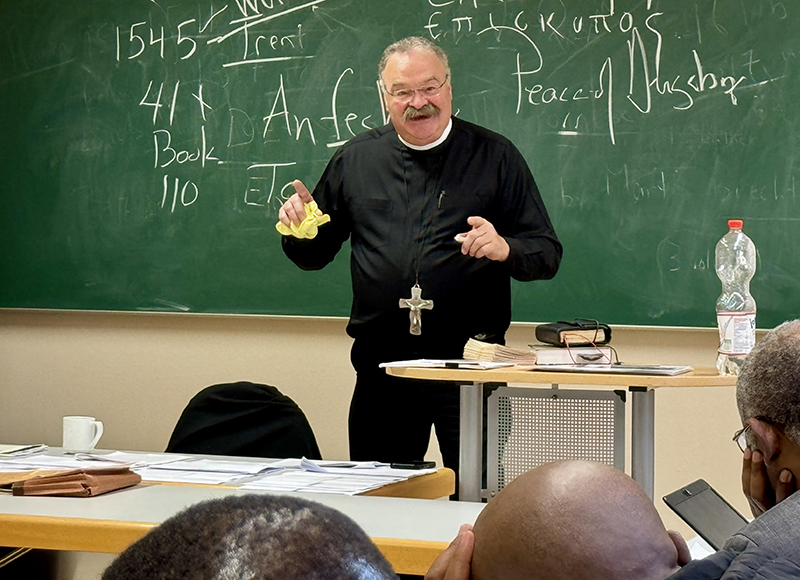
During his class, President Harrison related to the participants not only as an instructor of a course but also as a fellow and senior churchman—a colleague as a leader of a Lutheran church body. He particularly focused his attention to the duties of visitation as bishop, superintendent, and president of the church body, exploring the historic documents which discuss this, and elaborating significant points both theologically and practically. His evangelical instruction on church leadership with passion and joy left a great impression on participants.
A few days after his session, President Harrison reflected on his days in Wittenberg, saying: “Fabulous memories. It was terrific! I had just a deepest joy to be among such faithful Lutheran leaders as our LLDP participants. I can’t thank the Lord enough for the tremendous work that the LLDP has been rendering. I am so glad to be a part of it. What a joy and privilege! Glory be to God!”
The next session of the LLDP will be held at Concordia Theological Seminary (Fort Wayne, Indiana) in June and July.
You can support the work of the Lutheran Leadership Development Program by making a donation online. You can also mail a donation by cheque to:
International Lutheran Council
P.O. Box 10149
Fort Wayne, Indiana 46850 USA
———————

